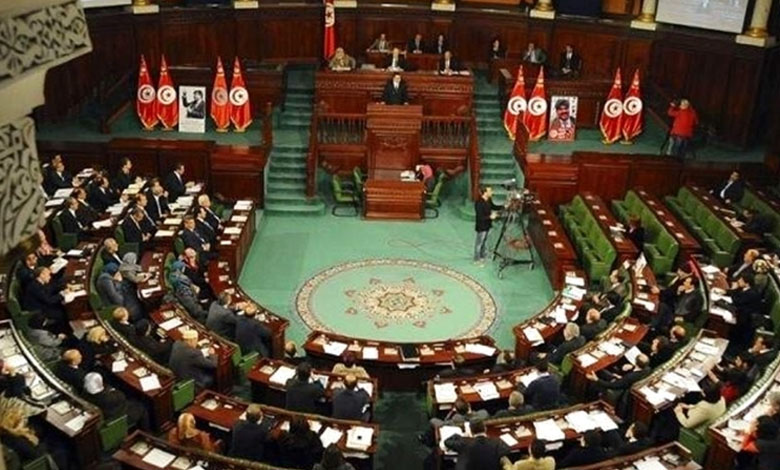This is the reality of the Brotherhood parliament in Tunisia before the July 25 measures

In a speech delivered before the United Nations Human Rights Council in Geneva, Tunisian Prime Minister Najla Bouden said that the democratic process before July 25, 2021 witnessed a stumbling block as a result of the worsening political tensions that weakened the state, especially in light of the health, social and economic crisis that affected the enjoyment of the rights of the Tunisian, especially the right to health and life.
“The dissolved parliament has turned into an arena of physical and psychological violence, and only a sense of hopelessness and despair has added to Tunisians,” said Bouden during the universal periodic review of the national report in the field of human rights.
“This prompted President Kais Saied to activate Chapter 80 of the 2014 Constitution, freeze the parliament, and then dissolve it, and write a new constitution after the July 25 referendum, pending the legislative elections on December 17,” she said.
In her speech, Bouden stressed that since Tunisia submitted its last report in 2017, which received 248 recommendations, 183 of which were accepted, and took note of 59 others, it has committed to following the human rights approach in accordance with its priorities and needs, and that “since then Tunisia has witnessed a number of moments that have made a difference on the path of democracy; These include the 2018 municipal elections and the 2019 legislative and presidential elections.”
Without stressing that the right to demonstrate and peaceful assembly in Tunisia is guaranteed for all, and that no demonstration was prevented in any field, pointing out that the violations that took place were individual and an investigation was opened, stressing that freedom of expression and the right to demonstrate are a cornerstone of the human rights system in Tunisia, and that there is no room for retreat or abandonment.
According to Bouden, the new constitution emphasizes equality between citizens and women, and in Chapter 51 it stipulates the state’s obligation to protect and develop women’s rights and to ensure equal opportunities for men and women in all fields, while seeking to achieve parity.
The dissolved parliament, which was dominated by the Muslim Brotherhood’s Ennahdha Movement and headed by its leader Rached Ghannouchi, witnessed a dangerous escalation of verbal and physical violence that reached the point of entanglement and stampede. This prompted MPs, politicians and the opposition to call for its dissolution, considering that it deepened the crisis the country is living through.
Over the past two years, the dissolved parliament witnessed chaos, bickering, and clashes between the head of the Free Constitutional Party, Abir Moussi, and her colleagues in the bloc, and between the representatives of the Muslim Brotherhood’s Ennahdha Movement and hard-line Dignity Coalition bloc. The matter reached a point of fighting and clashing in hands.
There have been several demonstrations in Tunisia demanding its dissolution and the accountability of the political class that has ruled the country over the past 10 years, first and foremost Ennahda; because of the introduction of terrorism into the country, the further impoverishment of the people, the deepening of its social and economic crises, and the luring of its sons to join terrorist groups.
Ennahdha opposes President Saied’s decisions to dissolve the parliament, dismiss the government, and change the constitution that he wrote in a popular referendum. In the meantime, Ennahdha is trying to mobilize the street to disrupt the upcoming elections and abort the July 25 process, in order to return to power and the parliament.
Saied accused those he described as “opponents of the Tunisian people” of “abusing it in all aspects of life, for example, the loss of vital medicines, and once for gasoline, in addition to a number of basic items such as wheat and subsidized oil.”
On several occasions, Saied confirmed the existence of evidence and indicators confirming that “there are those who seek to undermine the foundations of the state, by trespassing on its symbols, and to belong in the arms of foreign powers that boast of interfering in the country’s affairs and infringing on its sovereignty,” in reference to Ennahda and its allies.












